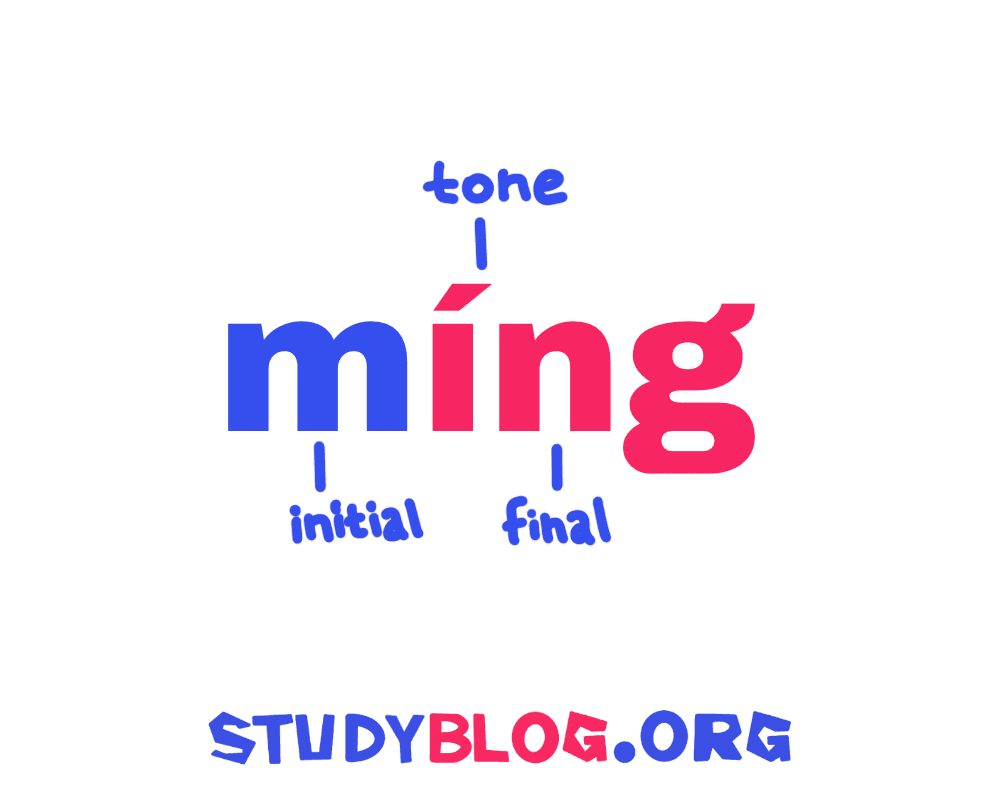Chinese syllables* usually contain three parts: an initial* (like, g, k, or h), a final* that contains at least one vowel* (for example, a, ao, or ing), and a tone* marking.
Initial Sounds
Pinyin* letters b, p, m, f are pronounced similarly to sounds in English.
| 八 |
bā |
eight (as in “spaghetti”) |
| 破 |
pò |
broken (as in “park”) |
| 名 |
míng |
name (as in “mother”) |
| 饭 |
fàn |
rice / meal (as in “father”) |
Chinese Names
In Chinese, the family name comes first, followed by the given name (or what me might call first name in English). In the example below, 李 lǐ (a family name) is the family name and 华 huá (a given name) is the given name.
| 你叫什么 |
Nǐ jiào shénme |
What’s your name? |
It is common in China for people to call each other by their family names. To ask someone’s family name, you can use 姓 xìng (to be family-named).
| 你姓什么 |
Nǐ xìng shénme |
What’s your family name? |
Asking Questions with 呢 (ne)
呢 (ne) is used at the end of a sentence to ask things like And you? or What about her? It normally answers a question that’s just been asked while directing the question to someone else.
| 你叫什么? |
Nǐ jiào shénme? |
What’s your name? |
| 我叫安娜,你呢? |
Wǒ jiào ānnà, nǐ ne? |
My name is Anna |
*
- A syllable is a sound chunk that contains one vowel. In Chinese, each character represents a syllable.
- An initial is a sound that begins a syllable. Most Chinese initials are consonants (like “p”, “k”, “s”).
- A final is a sound that ends a syllable. All Chinese finals contain at least one vowel (like “a”, “ao”, “ing”)
- Vowels are sounds like “a”, “e”, “i”. They are pronounced with air flowing freely through your mouth.
- Tone refers to the pitch (for example, the highness or lowness) of a sound. In Chinese, tone can change the meaning of a word.
- Pinyin – letters from the Roman alphabet used to represent Chinese sounds.
